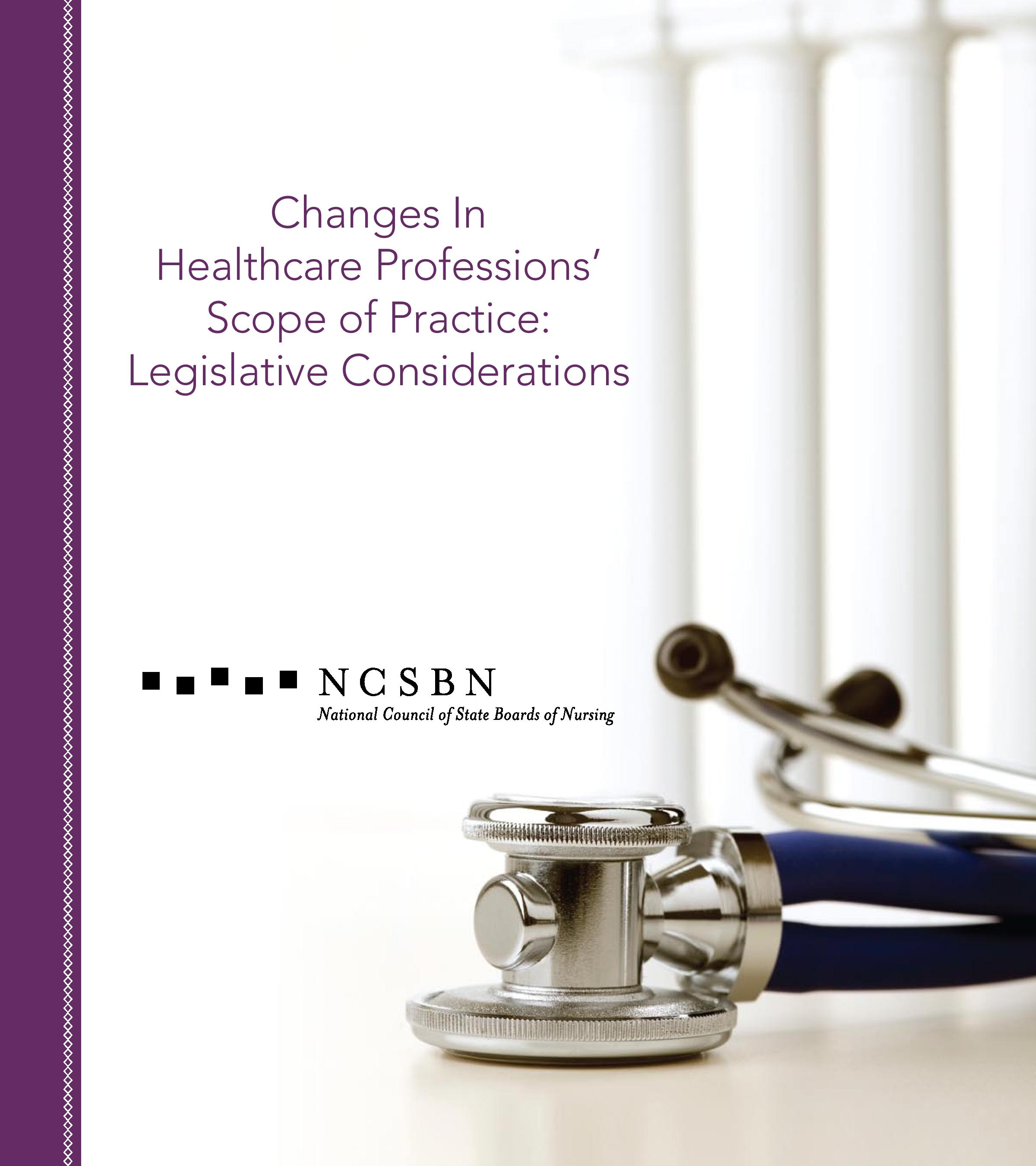With patient safety as the goal and clinical ability as the metric, Scope Changes articulates four areas of inquiry relevant to assessing changes in scope of practice. These include:
- Historical basis: How do the history, theory, and evolution of the profession and its practice support the requested change?
- Education and training: Do entry-level training programs provide the knowledge base and skill sets necessary for providers to acquire new skills? Do postprofessional training programs and/or competence assessment tools indicate that the advanced skill can be performed safely?
- Evidentiary base: What clinical evidence and research, standards of care, risk data, and other benchmarking data are available to support the inclusion of new skills or techniques in the safe practice of these providers?
- Regulatory environment: Is the licensing board authorized and prepared to resolve any regulatory issues resulting from the proposed change, including identifying standards of practice and training, as well as assessment mechanisms for competence?
The authors conclude that if the analysis of these factors demonstrates a strong basis for redefining a particular scope of practice, the request should be approved, since doing so would promote public access to quality care.
This evolution in scope of practice assessment from an authority-based perspective to one of evidence-based ability bodes well for NPs, midwives, and PAs in their desire to better meet the needs of their patients by providing safe and effective reproductive health care services, including abortion.

